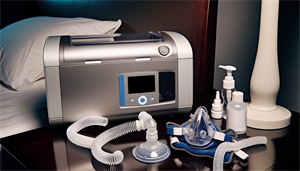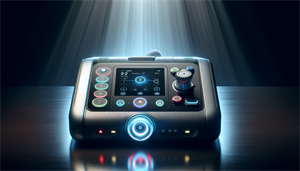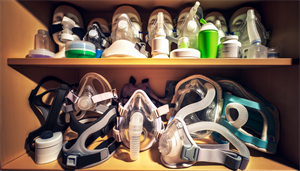Interested in “how much does a breathing machine cost”? CPAP machines can range from $500 to $3,000, with BiPAP and APAP variants often starting at about $1,000.
Our guide details these prices, explores insurance impacts, and examines the cost of essential accessories and maintenance to give you a comprehensive understanding of the financial aspect of breathing support.
Key Takeaways
-
Breathing machines such as CPAP, BiPAP, and APAP vary in cost due to features and accessories, ranging from approximately $500 for basic CPAP machines to over $3,000 for advanced BiPAP models, with market trends and supply chain disruptions affecting prices.
-
Insurance coverage can significantly reduce out-of-pocket expenses for breathing machines, but it often requires meeting certain usage criteria and may involve deductibles and co-pays; some insurance plans may cover rental costs or dictate rental before purchase.
-
Additional costs for operating breathing machines include masks, accessories, and routine maintenance, with expenses for essentials like mask liners, cleaning supplies, and replacement parts contributing to the overall cost of managing sleep apnea.
Breaking Down the Cost of Breathing Machines

The cost of a breathing machine, specifically a CPAP (Continuous Positive Airway Pressure) machine, can be influenced by a myriad of factors, including its features and accessories. Market trends and supply chain disruptions, such as the 2021 Philips Respironics recall and semiconductor chip shortage, have also contributed to increased expenses for CPAP equipment. In general, cpap machines cost typically range from approximately $500 to $1000 or more.
Starting CPAP therapy often involves an initial investment which includes the machine itself, which might range between $500 and $1,650, a mask, and basic cleaning supplies. Prices for items like CPAP headgear can range from $15-$40, contributing to the overall initial investment.
Managing these costs effectively requires diligent price comparison and market exploration to secure an advantageous deal. Considering older model CPAP machines can also be a cost-efficient alternative, as they are generally more budget-friendly when compared to newer models. On average, the initial setup for CPAP therapy can cost $900 to $1,400 without insurance.
CPAP Devices: Price Points and Features
A CPAP machine is a medical device designed to deliver pressurized air into the airway during sleep, using tubing and a mask. This type of machine is the most common treatment for sleep apnea. The cost of these machines typically starts at approximately $400 and can range up to $2000 or higher, with an average cost of around $750 without insurance. Factors such as the brand, manufacturing, and the type of accessories included can influence the pricing.
The life expectancy of a CPAP machine is generally five years. After this period, it is advisable to consider replacing it to maintain effective treatment. Conducting a thorough online price comparison can help secure the best value when purchasing a CPAP machine.
BiPAP Machines: Understanding the Higher Price Tag

BiPAP (Bilevel Positive Airway Pressure) machines offer more advanced settings than CPAP devices and are typically more expensive. These machines generally start from just over $1,000 and reach upwards of $3,000 or more.
The increased cost of BiPAP machines can be attributed to the advanced settings they offer. For instance, they allow for varying the timing, length, and volume of the breaths delivered, catering to more complex and specific patient needs. They also have the ability to adjust to different pressures for inhalation and exhalation, providing a more customizable breathing support compared to the single-pressure setting of CPAP machines.
APAP Machines: Cost Versus Flexibility
APAP (Automatic Positive Airway Pressure) machines are another variant of breathing machines. These machines automatically adjust pressure settings and offer more flexibility, with costs similar to CPAP machines but varying based on features. APAP machines typically range in price from $600 to $1,600, whereas CPAP machines are priced between $649 and $989.
The average price of an APAP machine in 2024 is approximately $700. The primary factors that contribute to the pricing of APAP machines are their auto-adjusting capability, advanced features, and higher initial cost in comparison to standard CPAP machines.
The Role of Insurance in Breathing Machine Expenses
While insurance can significantly cover the cost of breathing machines, navigating insurance policies and comprehending coverage options is a critical step. A confirmed diagnosis of sleep apnea and a prescription for CPAP use from a healthcare professional specializing in sleep medicine is necessary for insurance coverage of a CPAP machine.
Interestingly, Medicare and numerous private insurance providers mandate consistent use of the CPAP machine as prescribed. Typically, this entails using the machine for at least 70% of nights and for a minimum of four hours each night within the initial 30 days. Failing to comply may lead to having to cover the costs of CPAP therapy independently.
Insurance can help to lower the out-of-pocket expenses for CPAP machines and their supplies. However, most insurance plans require the insured to pay certain costs, such as deductibles and co-pays, before their coverage applies to the expenses.
Durable Medical Equipment Coverage
Durable medical equipment (DME) encompasses medical devices specifically intended for consistent and extended utilization, including but not limited to breathing machines. Breathing machines may qualify for coverage under insurance as durable medical equipment, contingent upon meeting specific criteria and aligning with the individual’s insurance plan for such coverage.
In order to get insurance coverage for a CPAP machine, the patient must have a sleep study and their medical provider must confirm to the insurance company that the results show potential benefit from using the CPAP machine. This helps ensure that coverage is provided for necessary medical equipment.
Navigating Insurance Plans for Optimal Coverage
Maximizing coverage necessitates a clear understanding of your insurance plan’s terms and requirements. One common pitfall to be aware of is the potential for insurance to not fully cover the expenses associated with CPAP machines. Additionally, insurance coverage for CPAP machines often necessitates adherence to usage compliance requirements.
Elevated deductibles or co-insurance requirements have the potential to raise your out-of-pocket expenses for CPAP equipment. Nevertheless, after the deductible is satisfied, Medicare, for example, covers 80% of the CPAP machine rental and supply costs.
Rental vs. Purchase Through Insurance
Certain insurance plans may necessitate the rental of a breathing machine before considering a purchase. The process of renting a CPAP machine is generally facilitated through an insurance provider.
The standard rental periods for CPAP machines covered by insurance vary, with the rental fee typically based on a monthly charge that reflects the allocation of the machine’s cost over the rental months. The cost for renting a CPAP machine through an insurance provider can vary, typically ranging from $30 to $250 per month. Under Original Medicare coverage, the renter may be responsible for paying 20% of the machine rental cost in addition to the cost of supplies.
Additional Costs: Masks, Accessories, and Maintenance

Beyond the machine’s cost, other expenses for breathing machines include masks, accessories, and essential routine maintenance for optimal treatment. Supplementary expenses for breathing machines can include the expenses for masks, hoses, and replacement supplies such as disposable, reusable, and bacteria filters. The pricing may differ, with straps ranging from $15 to $40, tubing from $9 to $75, mask cushions from $14 to $65, filters from $1 to $25, and humidifier chambers from $15 to $100.
Regular cleaning and maintenance are crucial to ensure the optimal performance and longevity of your breathing machine. The cost of cleaning supplies can vary, ranging from $20 to $350.
Selecting the Right Mask and Fitting
Effective use of a breathing machine hinges on selecting the right mask and ensuring a proper fit. The various types of CPAP masks comprise full face masks, nasal masks, and nasal pillow masks. The prices exhibit significant variation, starting from $20 for basic models and reaching approximately $250 for more advanced options.
It is crucial to ensure that the mask fits well, feels comfortable against your skin, and provides the right balance between comfort and effective treatment. A CPAP mask generally lasts for 3 to 6 months. Regular replacement is essential to ensure the treatment remains effective, thus necessitating consideration of mask costs in the overall budget for managing sleep apnea over time.
Essential CPAP Accessories and Their Prices
Essential accessories for a CPAP machine include:
-
CPAP Mask Liners
-
CPAP Hose Holders
-
CPAP Cleaning and Maintenance Products
-
CPAP Machine Carrying Cases
-
Heated CPAP Tubing
-
Mask Gels
-
CPAP Pillows
-
Mask Wipes
-
Nasal Pads
The typical cost of a CPAP hose ranges from $10.99 to $18.00, and is influenced by the brand and length. The price of CPAP accessories is determined by factors such as the type of accessory, the brand and model of the CPAP machine, and market conditions.
Cleaning Supplies and Routine Maintenance
The lifespan of a breathing machine, like a CPAP machine or portable oxygen concentrator, can be extended through regular maintenance and cleaning. Proper maintenance entails regular servicing, cleaning filters and cartridges, and ensuring the machine remains free from dust and dirt buildup.
According to CPAP equipment manufacturers, it is recommended to wash out the mask, tubing, and CPAP humidifier chamber at least once a week, and to clean the CPAP equipment daily after use. The necessary CPAP cleaning supplies for respiratory devices include mild soap (preferably unscented and without moisturizing ingredients), white vinegar (if a humidifier tank is used), and warm water.
Financing Options for CPAP Users
Users can make breathing machines more affordable through various financing options. Patients can reach out to organizations that offer financial assistance in such cases. Assistance programs such as The Reggie White Foundation, SecondWind CPAP, and the American Sleep Apnea Association can help reduce costs for eligible individuals.
There are also financing solutions accessible to assist patients in distributing the payment for their CPAP equipment over a period of time.
Assistance Programs Offered by Organizations
Assistance programs like the CPAP Assistance Program, provided by the American Sleep Apnea Association, offer eligible individuals a year’s supply of CPAP supplies for $100 or less. This national initiative aims to assist patients who may face financial barriers in obtaining essential equipment for their sleep apnea treatment.
In addition to national programs, numerous regional and local organizations throughout the country provide low-cost or complimentary assistance to CPAP users.
Exploring Credit and Financing Solutions
Credit and financing solutions such as CareCredit can help make breathing machines more accessible by spreading out payments over time. Some options include:
-
CareCredit credit card: You must meet the eligibility requirements for the CareCredit card, which is contingent upon your credit score.
-
Using a CareCredit credit card at participating locations.
-
Partnering with Affirm Financing through CPAPsupplies.com.
-
Utilizing 0% APR financing options like Bread Pay™.
Innovations and Market Trends Affecting CPAP Machine Costs
The cost of breathing machines can be influenced by:
-
Innovations and market trends
-
Supply chain disruptions, which can result in a scarcity of CPAP machines and drive up prices
-
The introduction of new products, like the new DreamStation by Phillips-Respironics, which may lead to significant price reductions on the previous generation machines.
Staying informed about these trends and exploring different purchasing options can help you get the best deal for your breathing machine.
Summary
Understanding the cost of breathing machines and the various factors that can influence it is crucial for anyone requiring sleep apnea treatment. From the type of machine to insurance coverage, additional costs for accessories and maintenance, and available financing options, each aspect plays a part in the overall cost. By staying informed about market trends and exploring various purchasing options, you can ensure you’re making an informed decision and getting the best deal possible.
Frequently Asked Questions
How much is a breathing machine worth?
A breathing machine can cost between $500 to $1,650 for a CPAP machine and $1,300 to upwards of $3,000 for a BiPAP machine, plus supplies.
Can I purchase a CPAP machine on my own?
You can only purchase a CPAP machine with a prescription from a doctor or sleep specialist. It's important to discuss your concerns with your healthcare team to develop a proper diagnosis and treatment plan.
How much does inspire cost without insurance?
Without insurance, the Inspire sleep apnea implant costs around $30,000 to $40,000, not including potential insurance coverage.
Are breathing machines good for you?
Yes, breathing machines like CPAP therapy can be beneficial for reducing symptoms of depression, based on research findings.
How does insurance cover the cost of a CPAP machine?
Insurance can help lower the out-of-pocket expenses for CPAP machines, but usually, the insured must pay deductibles and co-pays before coverage applies.

